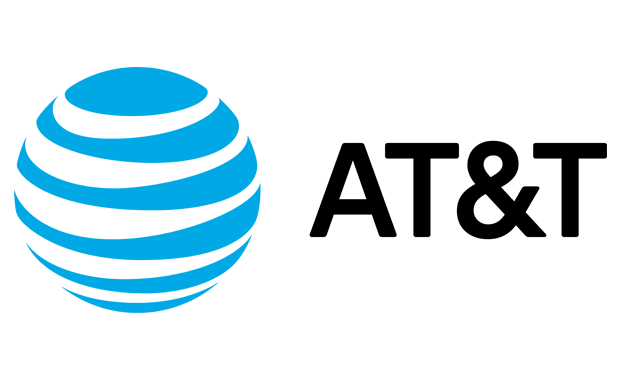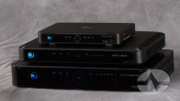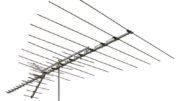The web is abuzz with articles like this one at FierceCable after AT&T reported earnings for the fourth quarter. There have been a lot of naysayers out there who assume that satellite TV is a “dead man walking,” especially after AT&T’s Randall Stephenson answered questions by saying,
Since the day we bought DirecTV, we assumed that traditional linear video would be in a declining mode. OTT and the ability to consume video on mobile devices, we believed, would be the trend and the wave of where things went. We wanted to be in the leadership position and facilitating that kind of consumption of premium video on mobile devices, and we have been in the leadership position in that. As it relates to video, we are standing up a video product that we are convinced will give us growth in the video platform for the next few years, and that’s our DirecTV Now. So, as traditional linear declines, DirecTV Now, we think, can offset that and not only that, but our traditional linear video will be repurposed.
To some negative Nancys, that sounds like DIRECTV Satellite is about to shut its doors and nothing can be further from the truth. Let’s take a look at the facts.
Satellite isn’t going anywhere.
This is a simple fact, and it’s easy to prove. DIRECTV Satellite is still the largest pay-TV service in the world and just because it’s losing subscribers doesn’t change that. It would be incredibly foolish for AT&T to shutter its satellite operation after paying close to $50 billion for it just a few years ago, and no doubt many of its subscribers would defect to other traditional pay-TV companies instead of moving to DIRECTV NOW, the company’ streaming service.
AT&T not only fully supports DIRECTV Satellite but they’ve rolled out the most advanced hardware in the industry along with a user interface refresh in the last 12 months. They’re even planning to launch a new satellite. This is not the behavior of a company that expects to close down the service entirely in the near futire.
But, they did know that pay-TV is evolving.
Satellite TV is still a dominant force in the present, but everyone knows that streaming is up and coming and nothing is going to change that. AT&T’s top brass knew that when they made an offer on DIRECTV, years ago. Of course they knew it, because you know it and I know it and trust me these people are a lot smarter than I am and they have a lot more insider information than I do.
It’s pretty obvious that a streaming-only service was always part of the plan. Former DIRECTV CEO Mike White said 7 years ago that people were not going to pay over $100 for basic TV service and he was right. DIRECTV NOW is a great option for people who don’t want to watch a lot of premium TV and who don’t need a lot of sports. It’s reasonably priced and it’s a great way for AT&T to keep customers who would otherwise have defected to cable’s triple-play deals.
Satellite TV is still a hit in a bunch of ways.
The fact is, yes DIRECTV Satellite is losing customers. But by and large, the customers they’re losing are the lower-earning ones. If you want sports, if you are a commercial customer or a hotel, or if you just have a lot of TVs, these kinds of people are staying with DIRECTV and keeping AT&T’s profits strong. No one is going to walk away from a bunch of profit.
In fact, by focusing on the kind of people who are really willing to pay more for a premium service, they might actually make more money with fewer subscribers. Think about that for a second.
There is a place for satellite in the future.
AT&T’s plans aren’t public, of course, but it’s pretty obvious that they have a plan for some sort of hybrid system that combines 5G fixed wireless with some sort of satellite downlink to give customers the best possible experience. DIRECTV satellite can send about 2.2 gigabytes of data down per second, and it’s going to be a long time before cellular can match that.
A typical system which put a satellite dish and a 5G wireless antenna on the same mast could deliver strong performance for on-demand programming while offloading live content to satellite reception so that the cellular connection wouldn’t get clogged. The customer wouldn’t even know the difference. At the same time, in cases where rain fade was a consideration, live TV could move back to cellular which is far less affected by rain fade. Again, the customer wouldn’t even be aware of the difference.
The growth of streaming is actually good for satellite.
Acquisition costs (the amount of money that AT&T pays directly to content providers) makes up about half of your satellite TV bill. The entire pay-TV industry is still struggling with the weight of contracts that treat local channels like they’re growing, dominant, important things. Yet, people are more attracted to non-broadcast content every day, and the amount of money paid even to some non-broadcast channels (*cough*ESPN*cough*) is criminal. Something needs to be done.
That something is streaming. By starting with a clean slate, companies like AT&T and DISH have successfully kept costs much lower for streaming services and avoided the bundling practices that fill your channel list with meaningless stuff you’ll never watch.
Now, most retransmission contracts run about three years, and as contracts come up, AT&T will negotiate for both streaming and satellite at the same time, hopefully offering lower per-subscriber prices and keeping customer bills down.
There’s only one company that can pull it off.
There is only one company out there with a class-leading pay-TV service, top-notch cellular and home internet service, and plans to implement 5G nationally. That’s AT&T. The bottom line here is that if you have DIRECTV Satellite, don’t worry… you picked the right horse.
Oh one more thing…
U-Verse TV. is a dead man walking. It’s been that way basically since the DIRECTV purchase, but AT&T is working as fast as it can to divest itself of U-Verse TV. It takes years to move past contracts that have been signed with local cities and towns, but they’re doing it. If you’re a U-Verse TV customer you’re getting bombarded with great deals to switch to DIRECTV or AT&T TV, and you should take advantage of them now because you don’t know when it will be too late.





